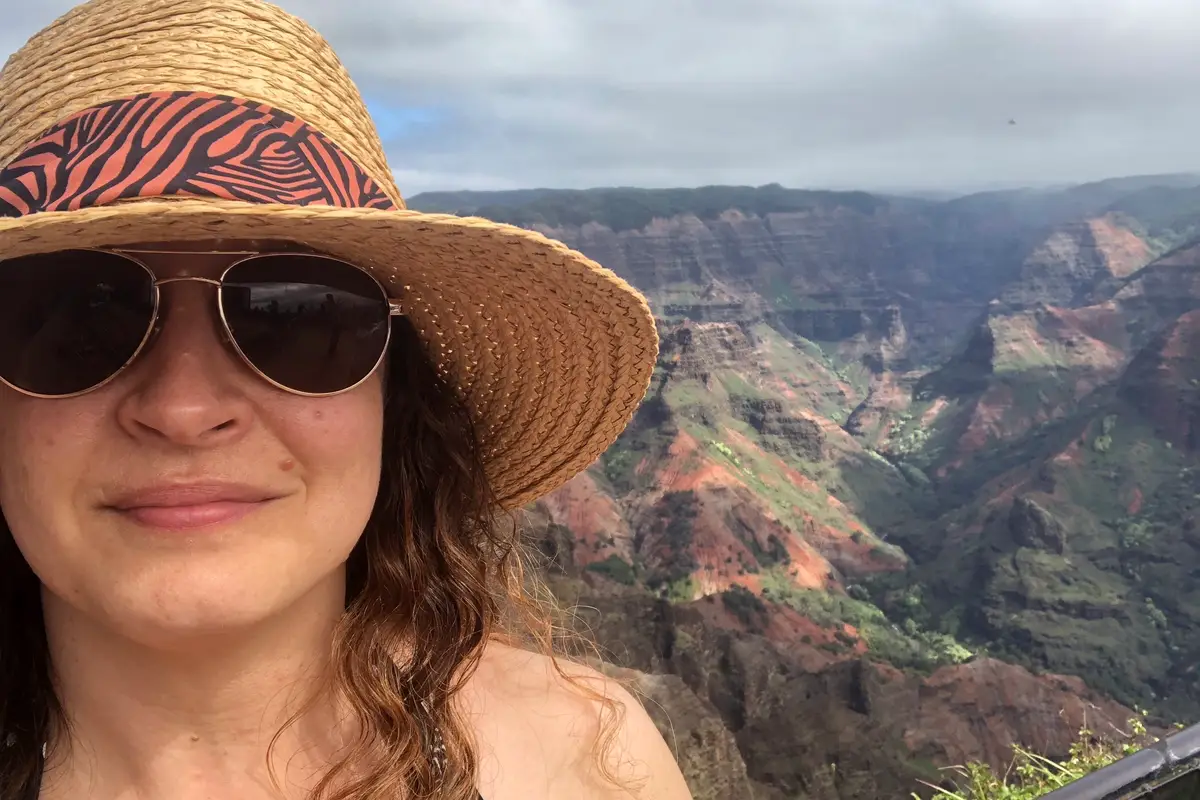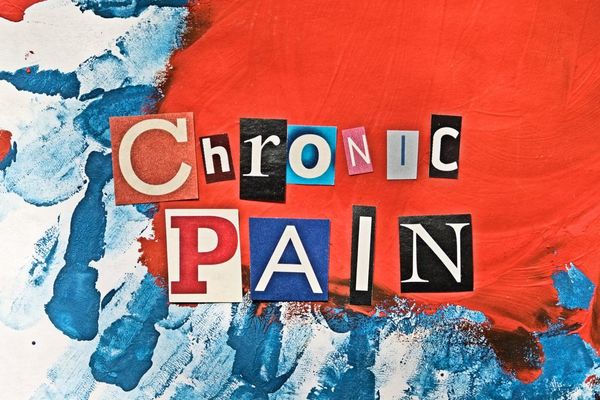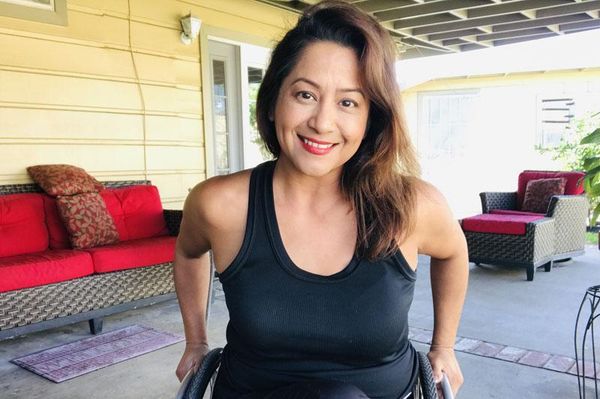Eight years ago, high on endorphins from a morning trail run, I tripped on a rock and flew through the air. Seconds from falling face-first and tumbling down the mountain, I twisted my body at the last moment. When I hit the ground, the lowest disc in my spine bulged and tore. My back pain began as an intermittent stabbing sensation; a year later, by my 33rd birthday, it had morphed into a monstrous daily distraction.
In my 20s, I only had three coping skills: running, writing, and obsessively controlling my time and my body. After a hard day, I'd go for a jog and ruminate on whatever was bothering me. My feet pounded the pavement until my breath evened out and the chatter in my head slowed and stopped. Running quieted my brain, providing endorphins I didn't know I needed. On the days I couldn't run, I made obsessive to-do lists or wrote stories about characters living quiet lives of unexpressed pain. The more productive I was, the better I felt about myself.
After my injury, back pain gradually overwhelmed my body, and I became unable to run. I could hike, but only on flat ground, and for less and less time.
Eventually, I couldn't stand up long enough to make my family a meal. My body began to soften and widen until my pants no longer fit. I stopped working on my novel because I couldn't concentrate. Without exercise, I felt scattered, irritable, depressed and lost. I made to-do lists, but couldn't complete the tasks or even remember what I'd wanted to write down. For the first time in my life, I couldn't run from or fictionalize my feelings or overwork my brain into a stupor.
It wasn't until about six years into my struggle that a realization hit me: all of my energy was going toward fighting the pain. I was trying to fix it. But what if I didn't get better? I understood I had a choice — to remain miserable or adjust to a new normal.
As my perspective shifted, I started thinking about healing from pain as a hill to climb, steadily, daily. I stopped feeling like a victim and downloaded Curable, an app that helps people work through pain with meditation and writing exercises, as well as Dr. David Hanscom's Direct Your Own Care (DOC) program, a similar approach to releasing repressed emotions.
I began to think about my pain as systemic — a mind-body issue. Ironically, as a psychologist, I'd never considered before how my emotional responses might be shaping my experience of physical pain.
I did expressive writing exercises that involved pouring out my feelings on paper, then immediately shredding it. The writer in me cringed at losing that potential material, but the DOC program suggests that becoming attached to the story of one's pain is exactly what perpetuates the negative emotions that fuel it. When I allowed my ruminations to spill freely onto the page, I uncovered feelings I didn't know I was holding onto — about not being seen, heard or supported in many areas of my life. When I destroyed my first angry diatribe, written to someone who'd victimized me as a child, a huge sense of relief washed over me.
As my self-awareness grew, I learned to set boundaries in my relationships, trust my instincts about what I needed and listen to my body's messages. On nights when I couldn't sleep, I began praying to a god whose name I didn't know, whose presence I wasn't sure I believed in, because I was tired of feeling alone and wanted something to relieve my suffering. My pain was decreasing, and I slowly allowed myself to shed my type A personality and step back to watch who I was becoming.
Over time, I assembled a tribe of medical providers who listened to my story and believed I could get better. Rather than baby my injury, my seventh physical therapist challenged me to work harder, squat lower and stop being so fearful of future pain. After she showed me a model of the brain and explained how its pain and anxiety pathways are actually the same, I used neurofeedback to reduce my anxiety. I forced myself to attend Pilates, where my instructor helped me become more aware of, and fix, my dysfunctional postural patterns. A physiatrist spent two hours listening to my treatment history, then gently guided my joints out of the spots where they'd been jammed for years, until my body could hold itself up.
My journey out of chronic pain mirrored psychologists Richard Tedeschi and Lawrence Calhoun's model of "posttraumatic growth" which I'd ironically written about in my doctoral dissertation in 2008. The authors noted that posttraumatic growth occurs after a "seismic" event (such as an acute injury) rocks someone's world. The person enduring this trauma must be "open to experience" in order to to let the experience change them for the better.
Moving toward growth means letting yourself feel the tough emotions that accompany loss. For me, this meant letting go of defining myself as a "runner," a "doer" and a "fiction writer" and literally sitting with the discomfort that had always bubbled beneath my skin. Now when I feel pain, I recognize it as a signal — that I'm ignoring an important feeling, working too hard or spending time with the wrong people.
Through my exhausting, expensive journey with chronic pain, I've learned that posttraumatic growth isn't some miracle that occurs once you "have it all figured out." The growth process starts while you are in the midst of struggle. My willingness to engage with pain, anxiety and depression, even when I wanted to ignore them, has given me a sense of strength I didn't realize I had. This strength isn't based on my achievement or appearance, but on an intuitive sense of knowing. I now trust it's OK not to know what lies ahead, as long as I have the courage and stamina to keep moving forward.
Melissa Neff, PhD, is a writer, psychologist and speaker living in Montana. Her clinical work focuses on fostering growth and resilience in children, adults, trauma survivors and differently wired populations. She is working on a memoir about chronic pain and the unexpected ways it has healed her body, mind and spirit. Follow her on Twitter @MelissaNeff17.
- For Millions of Americans Enduring Chronic Pain, Support Is Overdue ›
- Like Millions of Women, I Live With Chronic Pain — and I’ve Had to Learn to Advocate for Myself ›
- Childhood Trauma Can Lead to Chronic Pain ›







